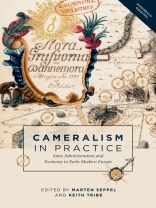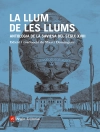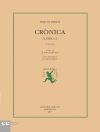The first book that acknowledges cameralism as a European rather than just a German historical phenomenon.
This book discusses the impact of cameralism on the practices of governance, early modern state-building and economy in seventeenth- and eighteenth-century Europe. It argues that the cameralist conception of state and economy – aform of ‘science’ of government dedicated to reforming society while promoting economic development, and often associated mainly with Prussia – had significant impact far beyond Germany and Austria. In fact, its influence spread into Denmark, Sweden, Russia, Portugal, Northern Italy and other parts of Europe. In this volume, an international set of experts discusses administrative practices and policies in relation to population, forestry, proto-industry, trade, mining affairs, education, police regulation, and insurance. The book will appeal to early modernists, economic historians and historians of economic thought.
MARTEN SEPPEL is Associate Professor of Early Modern History at the University of Tartu, Estonia. He holds an MPhil from the University of Cambridge. KEITH TRIBE has a Ph D from the University of Cambridge and taught at the University of Keele (UK) from 1976 to 2002, retiring as Reader in Economics. He is now working as a highly regarded professional translator and independent scholar. Forthcoming work includes a new translation of Max Weber,
Economy and Society Part One (Harvard University Press, 2018). His publications include
Strategies of Economic Order (CUP, 1995/2007);
The Economy of the Word. Language, History, and Economics (OUP, 2015); and (edited with Pat Hudson)
The Contradictions of Capital in the Twenty-First Century (Agenda, 2016).
Contributors: ROGER BARTLETT, ALEXANDRE MENDES CUNHA, HANS FRAMBACH, GUILLAUME GARNER, LARS MAGNUSSON, INGRID MARKUSSEN, FRANK OBERHOLZNER, GÖRAN RYDÉN, MARTEN SEPPEL, KEITH TRIBE, PAUL WARDE
Tabela de Conteúdo
Introduction: Cameralism in Practice – Marten Seppel
Comparing Cameralisms – the Case of Sweden and Prussia – Lars Magnusson
Baltic Cameralism? – Keith Tribe
Cameralism in Russia: Empress Catherine II and Population Policy – Roger Bartlett
Cameralist Population Policy and the Problem of Serfdom, 1680-1720 – Marten Seppel
Cameralist Writing in the Mirror of Practice: the Long Development of Forestry in Germany – Paul Warde
Cameralist Theoretical Writings on Manufacturing and Administrative Practice in the German Principalities: Conflict and Coherence – Guillaume Garner
Administrative Centralisation, Police Regulations and Mining Sciences as Channels for the Dissemination of Cameralist Ideas in the Iberian World – Alexandre Mendes Cunha
Balancing the Divine with the Private. The Practices of Hushållning in Eighteenth-Century Sweden – Göran Rydén
Johan Ludvig Reventlow’s Master Plan at the Brahetrolleborg Estate: Cameralism in Denmark in the 1780s and 1790s – Ingrid Markussen
‘Maasreguln wider die Unglücksfaelle’ – Cameralism and its Influence on the Establishment of Insurance Schemes – Frank Oberholzner
The Decline of Cameralism in Germany at the Turn of the Nineteenth Century – Hans Frambach
Concluding Remarks – Keith Tribe
Bibliography












